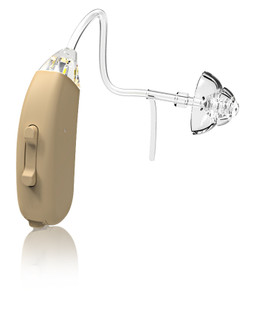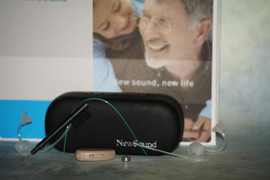What happens to your hearing as you get older
Posted by DR Paul on Feb 25, 2023
As you get older, your hearing can start to decline. This is called age-related hearing loss or presbycusis. It usually occurs gradually over time, beginning after the age of 65.
Presbycusis can be caused by a number of factors such as exposure to noise or certain medications, but it is typically just a part of the aging process. It can affect one or both ears and may cause difficulty hearing higher-pitched sounds, such as children's voices.
What is Presbycusis?
Presbycusis is a type of age-related hearing loss that typically affects people over the age of 65. It can be caused by exposure to loud noises, certain medications, and as part of the normal aging process. Symptoms may include difficulty hearing higher-pitched sounds or quiet speech.
In some cases, presbycusis can be treated with hearing aids or other assistive devices. However, it is important to speak with your doctor if you are experiencing any changes in your hearing. They can help determine the cause and suggest the best course of treatment for you.
If left untreated, presbycusis may worsen over time, leading to communication difficulties and social isolation. It is important to protect your hearing, especially as you get older so that you can continue to enjoy the activities and conversations that make life enjoyable.
By taking steps to prevent age-related hearing loss, such as wearing earplugs when exposed to loud noises and getting regular hearing tests, you can help ensure that your ears stay healthy as you age.
Presbycusis can have serious consequences, including social isolation and depression. It can also make it difficult to interact with family members, especially grandchildren. Fortunately, there are treatments available to help manage age-related hearing loss. These can range from simple solutions like using a hearing aid or wearing ear plugs in loud environments, to more complex measures such as surgery or cochlear implants.
It is important to discuss any changes in your hearing with a medical professional and take steps to protect your hearing, even as you age. This will help ensure that you continue to enjoy conversations and activities for many years to come.
Some people with presbycusis may also experience tinnitus, which is a ringing or buzzing sound in the ear. If you have age-related hearing loss, there are steps you can take to help manage it.
Using hearing aids or other assistive devices, avoiding loud noises, and wearing ear protection in certain environments are a few strategies that can help you better communicate with those around you. If your hearing loss is more severe, surgery may be an option for some people.
No matter what stage of hearing loss you’re in, it is essential to be proactive and take steps to address it. With the right help and support, you can still lead a happy and active life with age-related hearing loss.










